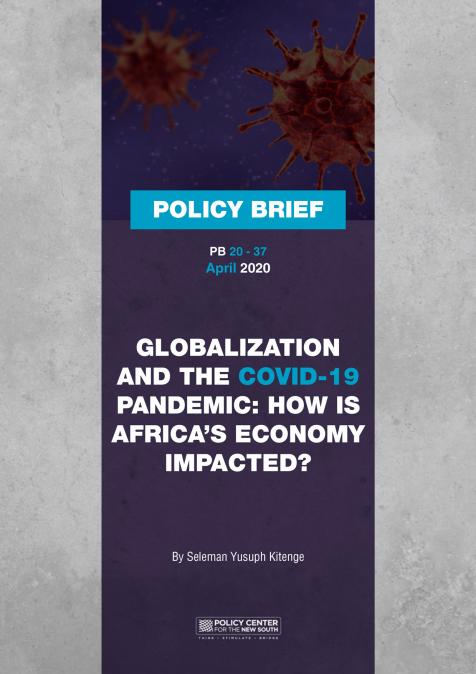Publications /
Policy Brief
Globalization has major linkages to the spread of diseases. This paper analyses the link between globalization and the COVID-19 pandemic and provides an overview of how Africa’s economy is being impacted by this new disease. It highlights the impacts on GDP growth and economic sectors. It provides recommendations of what should be done by African governments to address the problem. It concludes by calling on African governments to consider the socio-economic circumstances of their people when responding and mitigating the risk of COVID-19 and to carefully calculate and consider the risks posed via three main economic channels—demand, supply, and finance—which could have a serious impact on ordinary citizens in Africa.
Since the rise of globalisation, the world has become more closely connected and people can easily interact with each other without facing any serious barriers. This has been both beneficial and detrimental to the social, political, and economic sphere as far as the welfare of people is concerned. The free movement of people, goods, and services brought about by globalisation has stimulated socio-economic development, but it has also become a channel for the spread of diseases. As a result, because of the technological developments associated with globalisation, an outbreak such as COVID-19 has turned into a major pandemic that affects people around the world regardless of their geographical location.








